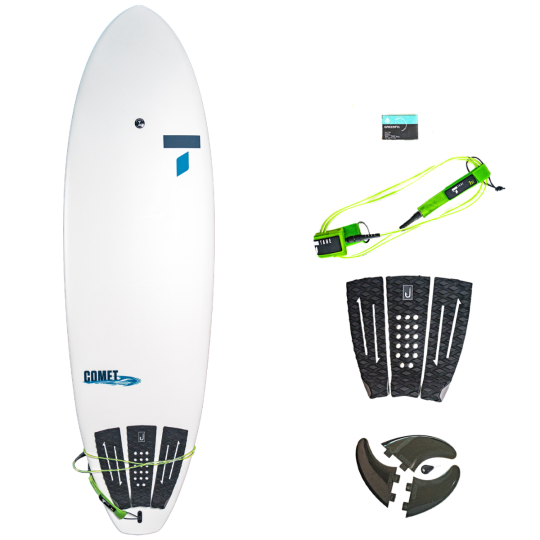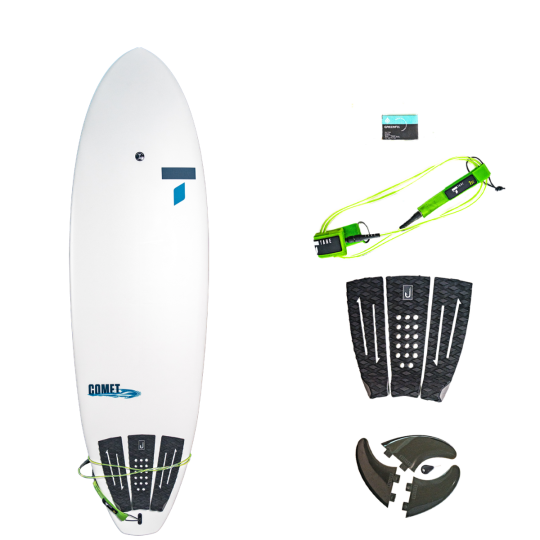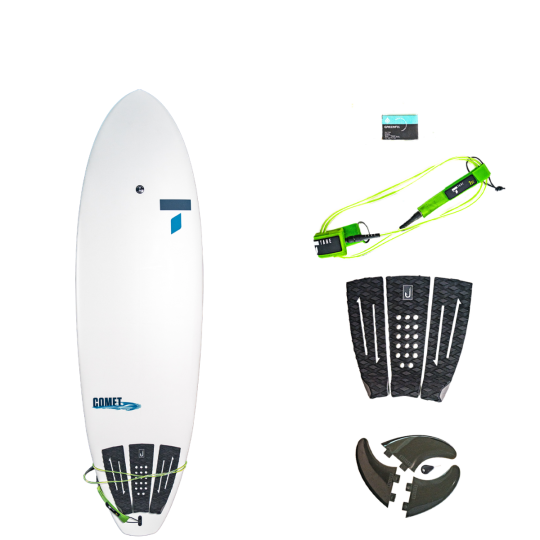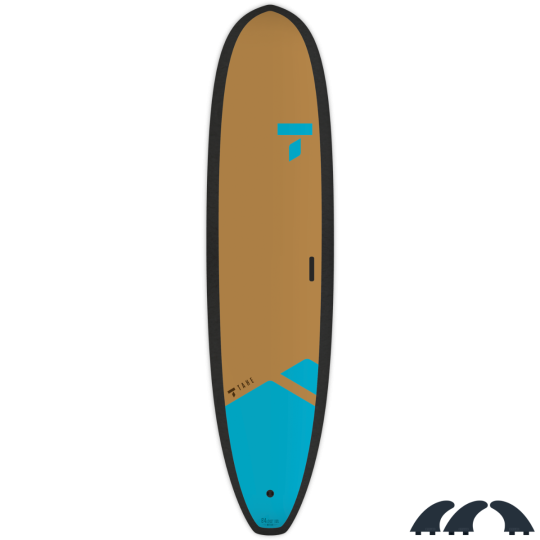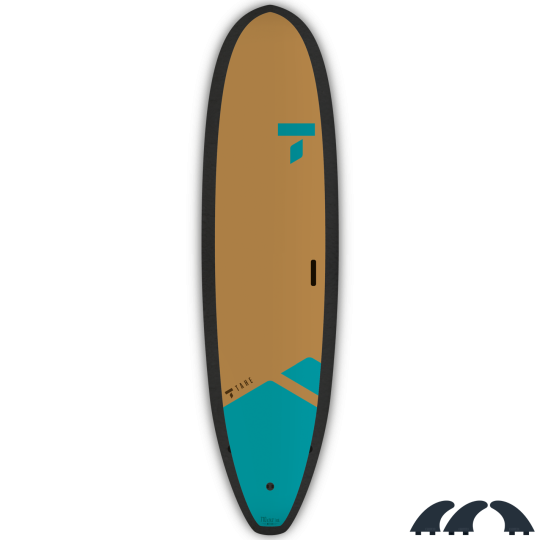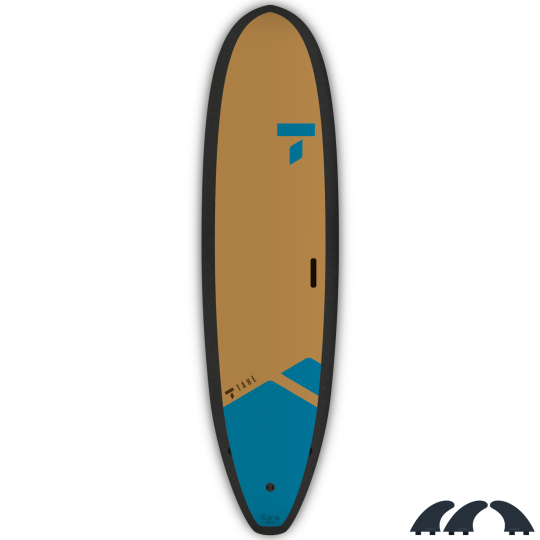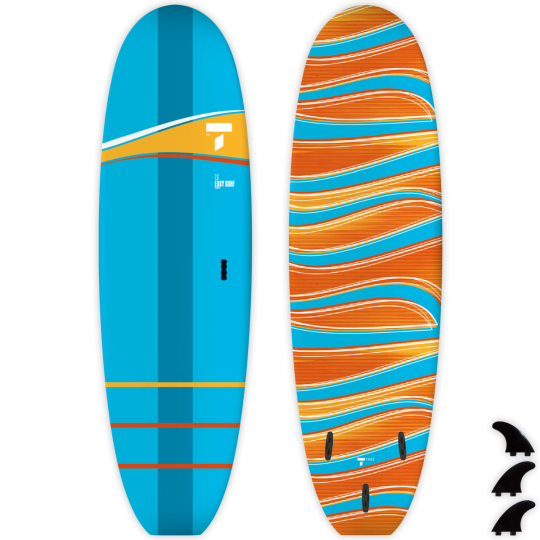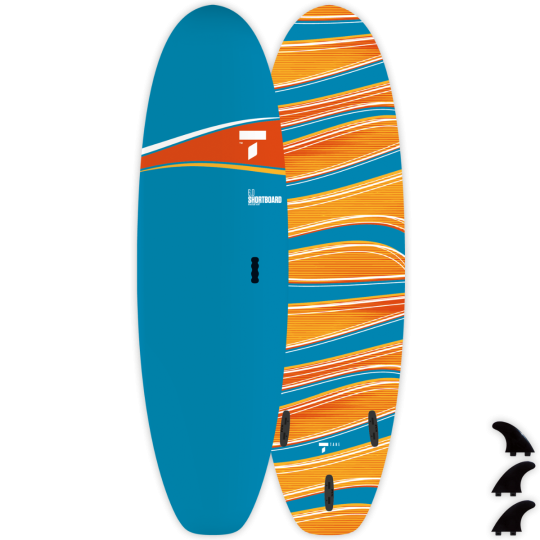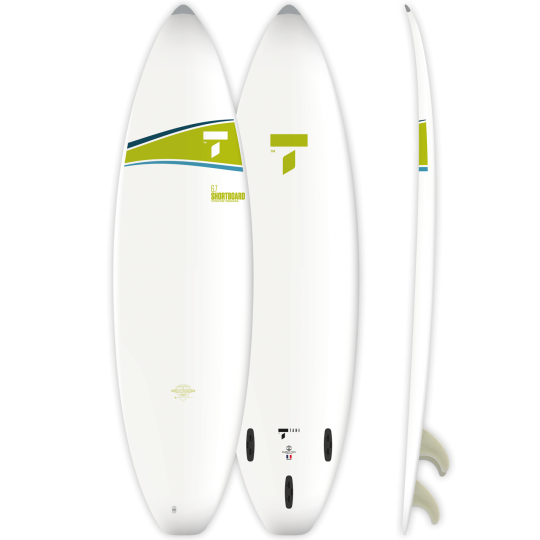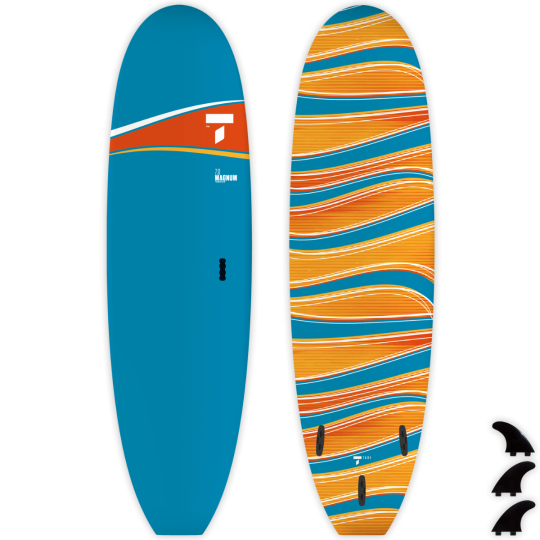How to Choose the Right Surfboard
Choosing the right surfboard is critical to ensuring you maximize fun and success on the water. The information here will help you narrow down your choices based on two key factors – Rider Skill Level and Rider Weight. With these two pieces of information we can quickly narrow down your choices to boards that are most suitable for you. As always if you need further assistance you can always reach out to us HERE.
- VOLUME: The amount of volume, or "float", your board has is the first criteria to consider when choosing a board that will work best for you. The volume of a board is determined by length, width and thickness. Boards with more volume are easier to learn on and progress. Boards with less volume are harder to learn on but easier to do turns and duck underneath larger waves. If in doubt, beginners should choose boards with more volume.
- LENGTH: The second criteria to consider is length. Longer boards are generally faster to paddle, easier to catch waves and stand up. Shorter boards are generally easier to turn and duck underneath larger waves. Beginners should typically choose longer boards.
- PRODUCT TYPE: Our comprehensive range of rigid and soft-top surfboards cover beginner through experienced wave riders of all sizes. Rigid surfboards feature an incredibly durable construction matched with performance-minded shapes. Paint Soft-Tops are user-friendly, low-impact, easy to surf boards for learning, progressing, and maximum fun.
- RIDER WEIGHT: Find your (approximate) weight in the table below, then select your skill level to find the appropriate board volume for you.
Note: these are not exact numbers but will give you a good reference to narrow down your options within the TAHE surf range.
All of our surfboards include Volume as a specification to help you select boards that are near your appropriate volume.
|
Rider Weight (kg) |
Rider Weight (lbs) |
Beginner board Volume (liters) |
Intermediate Board Volume (liters) |
Advanced Board Volume (liters) |
| 50 | 110 | 45 | 35 | 30 |
| 60 | 130 | 55 | 45 | 35 |
| 70 | 150 | 60 | 50 | 40 |
| 75 | 165 | 65 | 55 | 45 |
| 80 | 180 | 75 | 60 | 50 |
| 90 | 200 | 85 | 65 | 55 |
| 100 | 230 | 95 | 80 | 65 |
MORE ABOUT VOLUME (Science Stuff): Volume in Liters is directly proportional to weight in Kilograms. For example an 80kg surfer is neutrally buoyant on an 80 liter board, and so will float directly on the surface of the water when sitting on their board. When the board is lower in volume than the surfers weight they will sink the board under the surface. For beginners a board with nearly as much volume in liters as their weight in kilograms is ideal as it makes paddling, catching waves and standing up easier. Beginners can always use boards with extra volume - you can successfully teach a lightweight beginner on a very large board. Intermediates typically need around 75% of their weight in volume, and advanced riders 60% (expert can be as low as 30-40%.). The table above is based on this information.
How to Choose the Right Surfboard
Choosing the right surfboard is critical to ensuring you maximize fun and success on the water. The information here will help you narrow down your choices based on two key factors – Rider Skill Level and Rider Weight. With these two pieces of information we can quickly narrow down your choices to boards that are most suitable for you. As always if you need further assistance you can always reach out to us HERE.
1. LEVEL


Your taking the first steps to become a surfer. You’re standing-up, taking off and experiencing the sensations of sliding down the face of a wave for the first time. It’s the beginning of a wild adventure!


You’ve master the basics, reading the waves and understanding how to make maneuvers has become easier. As your desire to progress you skill level increases, you can feel that your on the right track!


You’ve toned your riding skills, comfortable in diverse conditions, and wave selection is second nature. You’re master your trajectory!


2. VOLUME AND RIDER WEIGHT
VOLUME: The amount of volume, or "float", your board has is the first criteria to consider when choosing a board that will work best for you. The volume of a board is determined by length, width and thickness. Boards with more volume are easier to learn on and progress. Boards with less volume are harder to learn on but easier to do turns and duck underneath larger waves. If in doubt, beginners should choose boards with more volume.
RIDER WEIGHT: Find your (approximate) weight in the table below, then select your skill level to find the appropriate board volume for you.
|
Rider Weight (kg) |
Rider Weight (lbs) |
Beginner board Volume (liters) |
Intermediate Board Volume (liters) |
Advanced Board Volume (liters) |
Expert Board Volume (liters) |
| 50 | 110 | 45 | 35 | 30 | 20 |
| 60 | 130 | 55 | 45 | 35 | 20 |
| 70 | 150 | 60 | 50 | 40 | 25 |
| 75 | 165 | 65 | 55 | 45 | 25 |
| 80 | 180 | 75 | 60 | 50 | 30 |
| 90 | 200 | 85 | 65 | 55 | 30 |
| 100 | 230 | 95 | 80 | 65 | 35 |
3. LENGHT
LENGTH: The second criteria to consider is length. Longer boards are generally faster to paddle, easier to catch waves and stand up. Shorter boards are generally easier to turn and duck underneath larger waves. Beginners should typically choose longer boards.
Shortboards
A shortboard is generally a surfboard designed for small to medium sized waves, although some shapes are designed for larger waves.
These boards can have a playful shape (fish type) or have more radical lines.
Mid-lengths
A Funboard is a medium-sized hybrid surfboard that can be used in a wide range of waves.
The nose is generally wider and rounder, which allows for early take-off and good control of the board in the waves.
Longboards
A longboard is a classic surfboard for riding small to medium-sized waves. These boards make it easier to generate speed and catch the waves.
They are designed so that you can move around on the board to perform maneuvers.
4. TECHNOLOGY
Our full line of hard and soft top surfboards are designed for both beginners and experienced surfers. DURA-TEC surfboards are unique thanks to their incredibly durable construction combined with their high-performance shapes. The Paint boards are ideal for anyone who wants to start surfing with ease, progress quickly and have maximum fun.
Thermoformed Technologies
Discover our range of surfboards made in France. They are ultra solid and durable to make for many memorable sessions. DURA-TEC hardboards are solid and efficient thanks to the design of our legendary shapers Gérard Dabbadie and Peter Pan. Jon Henderson is the designer of our TOUGH-TEC boards, which are perfect for anyone looking to progess their skills quickly. Available in several sizes, the COMETs are reliable and forgiving in all types of conditions, but also very fast and maneuverable.
DURA-TEC TECHNOLOGY
Thermoforming around a Polystyrene Core
• Used exclusively for surfboards that are built to last.
• Closed cell PU inner core for structural integrity and
board stiffness.
• Strong blow-moulded outer PE skin for ding resistance,
long-term durability.
• Molded external fin inserts - no penetrations through outer
shell and maximum strength.
Products using this technique:
DURA-TEC Surfboards


1- Polyethylene Outer Shell.
2- Polyurethane Foam Inner Core.
3- Polyethylene Outer Shell.
TOUGH-TEC TECHNOLOGY
Thermoforming around a Polystyrene Core
• Molded, Watertight EPS Foam Core for structural integrity
and stiffness.
• Extremely tough outer polyethylene skin for extreme
impact resistance.
• Embossed EVA foam pad for maximum comfort.
• Molded external inserts – no penetrations through outer
shell and maximum strength.
Products using this technique:
Designated Windsurf, SUP and Surf boards


1- Deck pad.
2- Rugged Polyethylene Outer Shell.
3- Molded, Watertight EPS Foam Core.
4- Polyethylene outer shell.
Soft Technologies
Tough-Tec boards are made of an EPS core and a polyethylene shell. This technology offers an unmatched "unbreakable performance" to evolve and progress on the waves. All these boards are recyclable and 100% Made In France.
PAINT Technology
Key Features
• Fiberglass & epoxy reinforced core = durability and
enhanced product lifetime.
• Soft IXPE foam top/rails and soft fins = comfort and
user-friendly performance.
• Durable protective deck layer = protects graphics.
• Soft, user-friendly fins with performance shapes =
safety and performance.
Products using this technique:
PAINT Surfboards


1- Leash plug / 2- Soft deck and rails / 3- 2 x 6oz Fiberglass layers + epoxy
4- EPS foam core / 5- Soft plastic fins / 6- Soft foam layer
7- Hard slick bottom / 8- Wood or composite stringers
5. LAST STEP
Now know a lot of the information you’ll need to consider when selecting a board. Once you have decided on the volume, size, and type of board, there is only one thing left to…catch a wave ! You can browse through our wide selection and find your new board in our catalog: HERE


